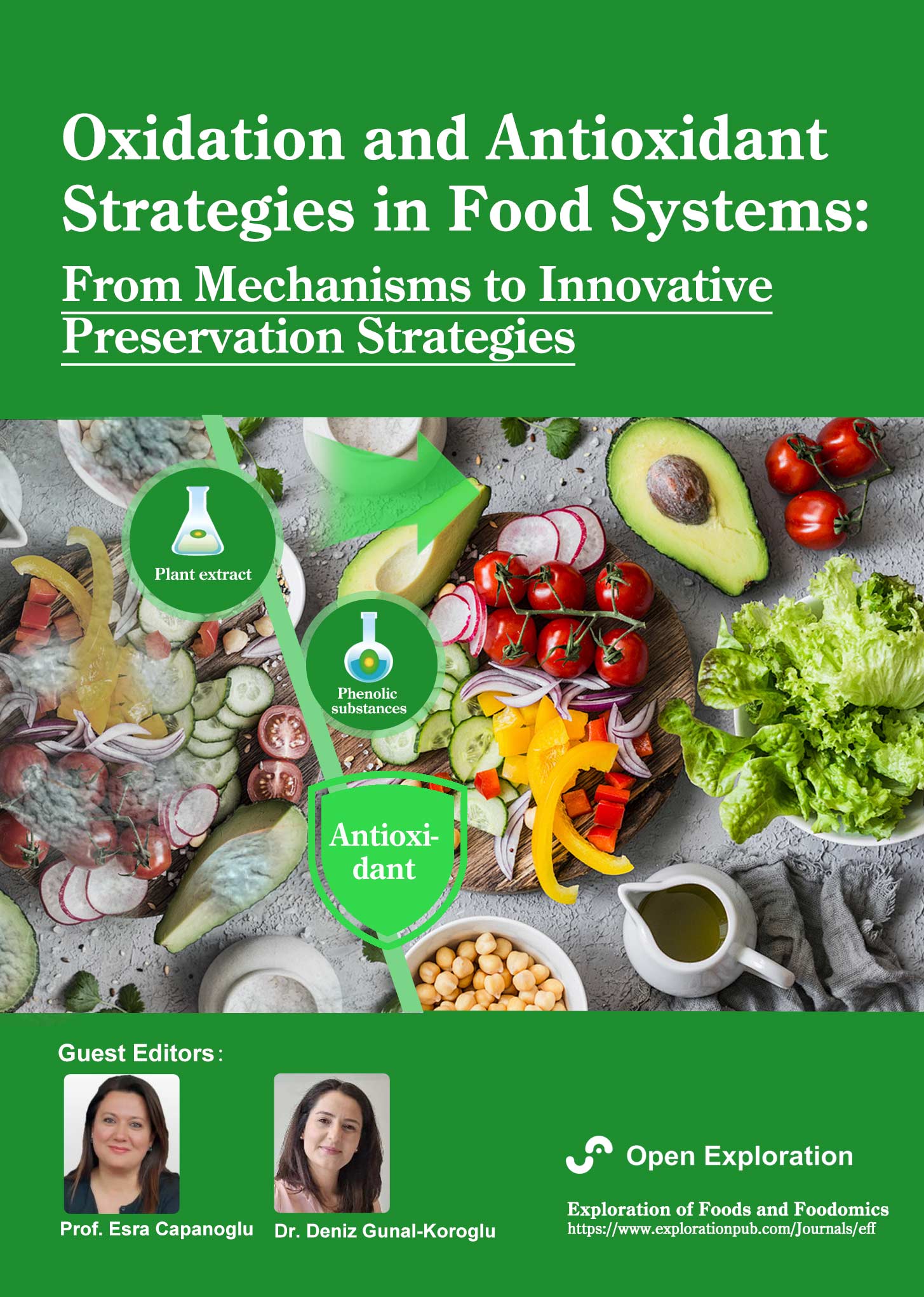
Oxidation and Antioxidant Strategies in Food Systems: From Mechanisms to Innovative Preservation Strategies
Guest Editors
Esra Capanoglu E-Mail
Department of Food Engineering, Istanbul Technical University, Istanbul, Turkey.
Research Keywords: Antioxidants, high-performance liquid chromatography, natural product chemistry, antioxidant activity, bioaccessibility and digestibility, antioxidant activity and bioactive compounds, protein-phenolic interactions
Deniz Gunal-Koroglu E-Mail
Department of Food Engineering, Istanbul Technical University, Istanbul, Turkey
Research Keywords: Oxidation, lipid oxidation, protein oxidation, antioxidants, bioaccessibility and digestibility, antioxidant activity and bioactive compounds, protein-phenolic interactions
About the Special lssue
Oxidation remains one of the primary challenges affecting the quality, safety, and shelf life of food products, particularly those rich in lipids and proteins. Lipid peroxidation and protein oxidation not only diminish nutritional value and sensory attributes but can also generate harmful compounds, posing health risks. Over the past decades, extensive research has focused on developing effective antioxidant strategies to mitigate these deleterious changes in food systems. Conventional approaches, including the addition of natural or synthetic antioxidants combined with traditional preservation methods such as refrigeration and freezing, have demonstrated significant efficacy in slowing oxidative processes.
In parallel, emerging preservation technologies, including pulsed-electric field (PEF), high-pressure processing (HPP), irradiation, cold plasma, and ultraviolet (UV) light, offer innovative avenues to control oxidation in foods. However, their effects are highly dependent on processing conditions and the food matrix, and in certain cases, these technologies may induce oxidative changes rather than prevent them. These technologies interact with oxidative pathways in complex ways, and their integration with antioxidant compounds represents a promising strategy for enhancing food stability. Furthermore, understanding the mechanisms underlying lipid and protein oxidation, as well as the kinetics of antioxidant activity, is critical for designing tailored interventions that extend shelf life without compromising food safety or quality.
This Special Issue aims to bring together cutting-edge research on oxidation and antioxidant strategies in food systems, encompassing mechanistic studies, applied preservation techniques, and novel technologies. Contributions that explore synergistic effects, innovative antioxidant delivery systems, and comparative evaluations of conventional and emerging methods are particularly welcome. By showcasing recent advancements and practical applications, this Special Issue seeks to provide a comprehensive overview of strategies to enhance food stability, safety, and quality, thereby supporting the development of next-generation functional and sustainable food products.
Keywords: Oxidative stability, shelf life, bioactive compounds, phenolic compounds, essential oils, emerging preservation technologies